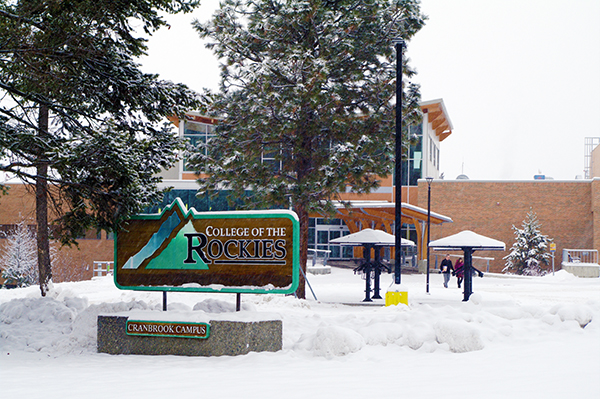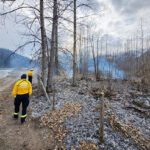Home »

Canada-B.C. funding for jobs training in region
Up to 144 East Kootenay residents will be receiving the training they need for jobs in their communities thanks to the federal-provincial partnership under the Canada-B.C. Job Fund Agreement.
 Approximately $926,000 has been allocated to the College of the Rockies to deliver the following two programs:
Approximately $926,000 has been allocated to the College of the Rockies to deliver the following two programs:
– Up to 36 students will receive training in wildland firefighting and silviculture. Funding of $486,028 has been allocated to provide class and field instruction to Aboriginal people, women and youth for employment as wildland firefighters and forestry field workers, with specialized skills in silviculture.
– Up to 108 students will receive training in the mountain hospitality program. Funding of $440,285 has been allocated to support the employment needs of the hospitality industry and train individuals for employment in the hospitality field in Fernie, Creston, Cranbrook, Invermere and Golden.
 “Preparing young people in the East Kootenay for a successful, rewarding career is essential for the economic well-being of our communities. With more people retiring from the workforce than young people entering it, we must continue to support programs such as these to ensure we have qualified men and women who are able to step into the job market,” stated Kootenay East MLA Bill Bennett.
“Preparing young people in the East Kootenay for a successful, rewarding career is essential for the economic well-being of our communities. With more people retiring from the workforce than young people entering it, we must continue to support programs such as these to ensure we have qualified men and women who are able to step into the job market,” stated Kootenay East MLA Bill Bennett.
“We appreciate the continued support of government as we work to help address the skills shortage in our region. The hospitality industry has been particularly hard hit in recent years. This funding will allow us to train close to 100 participants to help fill some of those gaps. The ministry has also been great at supporting our forestry training programs; this continued support will assist us in ensuring the forestry industry in our region has the required skilled workers in place to keep up with demand,” said Leah Bradish, director, continuing education, contract training & regional campus operations, College of the Rockies.
These training projects are part of an investment of more than $12 million for 49 training projects benefiting about 2,000 British Columbians throughout the province, thanks to funding provided through the Canada-B.C. Job Fund Agreement under the Employer-Sponsored Training stream.
The skills training projects support B.C.’s regional labour-market demands and provide opportunities to youth, women, Aboriginal people, immigrants and other eligible participants to receive training, as well as industry-recognized certificates or credentials.
“I felt very fortunate to be able to take this course. I enjoyed the classroom dynamics, I found part-time employment in an area I wanted and the industry certifications I received were great, as I would not have been able to get these otherwise,” said Lorinna Paul, graduate, College of the Rockies hospitality program (Golden campus).
Through the Canada Job Fund, the Government of Canada provides $500 million annually to the provinces and territories for investments in skills training. Under the Canada-British Columbia Job Fund Agreement, the province receives a total of $65 million per year – its per-capita share of the available funding.
The Canada-B.C. Job Fund helps ensure training programs give individuals the skills to enter and succeed in the job market. The Employer-Sponsored Training stream provides funding for project-based, time-limited, employer-driven training that leads to a job at the end of training. This includes targeted projects delivered by Aboriginal service providers, post-secondary institutions, industry associations, community groups, and private trainers that meet regional labour market needs. Employers also provide either financial or in-kind contributions to support the training.
B.C. is expecting almost one million job openings by 2025. Up to 134,700 job openings are expected in the Thompson-Okanagan and Kootenay region by 2025.
Two-thirds of B.C.’s job openings will be from retirements and one-third from economic growth.
Almost 80% of job openings in B.C. will require post-secondary education.
e-KNOW







